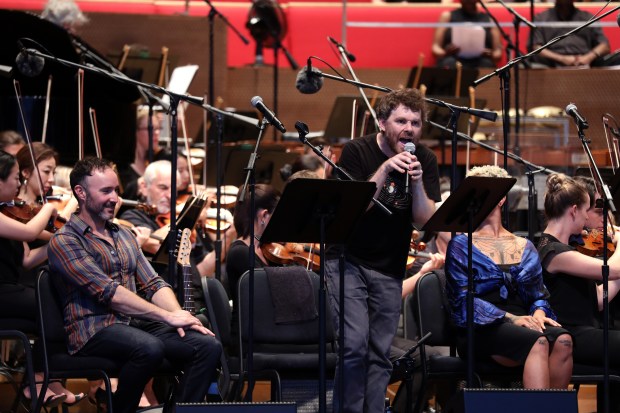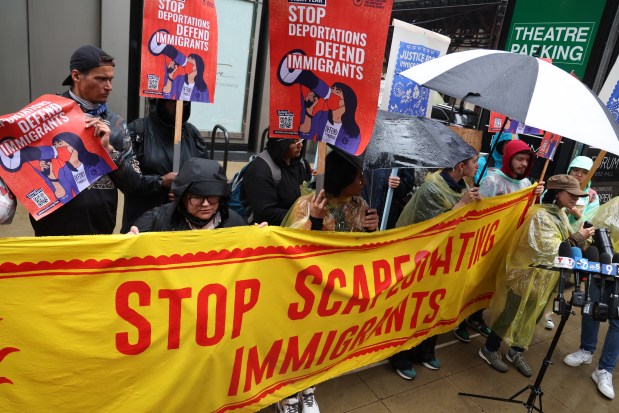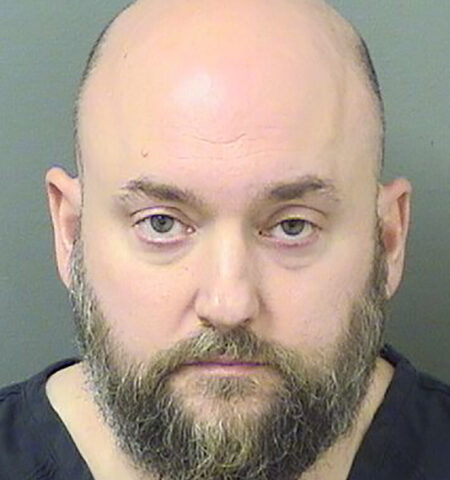Gabriel and Jeffrey Kahane can be found on stages more often than not, but they rarely share one. Most days, the father and son are lucky if they’re in the same time zone: Gabriel, 43, is a prolific composer and singer-songwriter, and Jeffrey, 68, is a touring conductor and pianist.
Their calendars sync up long enough — but only just — for a duo recital at Northwestern University, scheduled for April 21 after being deferred from January. It won’t be your standard four-hands affair. Expect Joni Mitchell, Paul Simon and Connie Converse, plus a sprinkle of originals by the guitar-wielding Kahane the Younger. Among them: “Final Privacy Song,” an 18-minute setting of a poem by Michael Zapruder about the devastation of wildfire.
The inclusion couldn’t be more apropos. When Jeffrey connected with the Tribune from San Antonio, where he directs the city’s nascent Philharmonic, his mind was 1,300 miles away with his home in Altadena, Calif. At the time of our conversation, the Eaton Fire was still raging. The Kahanes’ block miraculously survived, but the surrounding blocks, he said, “burned to the ground.” He left behind his scores and, of course, his piano.
“I’m having to improvise a little bit,” Jeffrey said, in the understatement of the year.
Meanwhile, Gabriel was in Evanston, working with Northwestern students on a run of his 2012 musical “February House,” with writer Seth Bockley. The play is a snapshot of a real-life experiment in communal living that attracted luminaries like Benjamin Britten, Carson McCullers and W.H. Auden. It only lasted one year, between 1940 and 1941, as World War II raged and fascism surged around the globe.
“At the time we made this piece, I thought, ‘Oh, how cowardly and short-sighted of Auden to be preoccupied with this idea of agape, Christian love, when the world was on fire,” Gabriel said. “But now, looking at the dysfunction and absence of love in our politics, I feel not only that bottom-up organizing is the solution, but that bottom-up organizing requires, as a prerequisite, an ethic of love.”
Gabriel has long funneled his capacious intellect and empathy into music. Not many pop songs are inspired by social science texts, but his are, reflecting his head-on engagement with topics like income inequality, climate change and the fragility of democracy. Locally, he brought his “emergency shelter intake form,” an oratorio on homelessness, to the 2019 Grant Park Music Festival. The concert was a Kahane family affair: Jeffrey split that bill with him, as the soloist in Gershwin’s Piano Concerto in F.
When asked what Gabriel was like as a child, the elder Kahane leaned back, deep in thought. Jeffrey focused, laserlike, on piano early on, winning accolades from some of the world’s top piano competitions in his 20s. In contrast, there have been many different Gabriels over the years, in many different places, owing to the nomadic nature of Jeffrey’s work: Boston, Rochester, Santa Rosa. (Jeffrey and his wife, Martha, moved to Altadena eight years ago, long after Gabriel and his sister Annie had moved out.) All the while, Gabriel was usually excelling at something. Before it was music, it was baseball, theater and chess. He was a ranked National Master at 15.
“He was always extremely passionate about something… People loved to talk to him, even when he was a 6- or 7-year-old,” Jeffrey said.
Music came along comparatively late. “He always loved music, and he was always fooling around at the piano. But something happened in high school, and music just took hold of him,” Jeffrey said. “He decided he was going to seriously pursue jazz. I would teach him a little bit here and there, but he was mostly self-taught.”
To Jeffrey’s “great astonishment and delight,” Gabriel was admitted to New England Conservatory, one of the U.S.’s most prestigious conservatories. But he didn’t stay long, transferring to Brown University partway through his studies. There, Gabriel began composing in earnest. One of his first public premieres was a choral piece composed for his class’s graduation ceremony.
“At some point, either during the concert or after, I turned to Martha and said, ‘Gabe is going to be a composer,’” Jeffrey said. “She looked at me and said, ‘What?’”
Father knew best. In addition to fellow singer-songwriters Sufjan Stevens and Andrew Bird, Gabriel counts classical eminences like composer/singer/violinist Caroline Shaw, clarinetist Anthony Gill, violinist Pekka Kuusisto, and ensembles Roomful of Teeth, Attacca Quartet, Brooklyn Rider and The Knights among his collaborators. In 2019, he became the first-ever “creative chair” of the Oregon Symphony in Portland, where he lives with his family.
In the end, Gabriel has followed his father’s footsteps far closer than he’d have expected as a young. Far from a prodigal son, he’s never resisted or railed against it.
“Earlier in my career, I would get these questions where I’d feel like someone was trying to find the controversy or conflict in our relationship,” Gabriel said. “The extent of that is me teasing him about, like, bad Instagram posts that he’s done.”
Hannah Edgar is a freelance critic.
The Rubin Institute for Music Criticism helps fund our classical music coverage. The Chicago Tribune maintains editorial control over assignments and content.
Jeffrey and Gabriel Kahane Duo will be 7:30 p.m. April 21 at the Ryan Center for the Musical Arts’ Galvin Recital Hall, 70 Arts Circle, Evanston; tickets $40 at www.music.northwestern.edu





